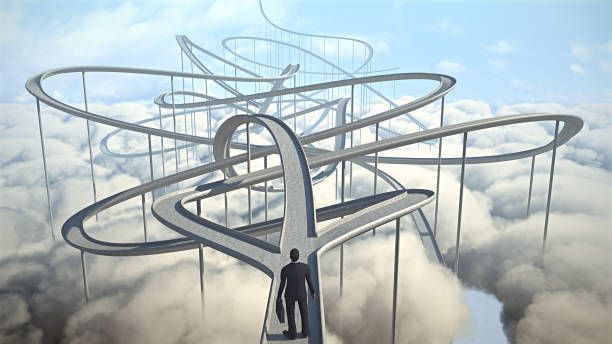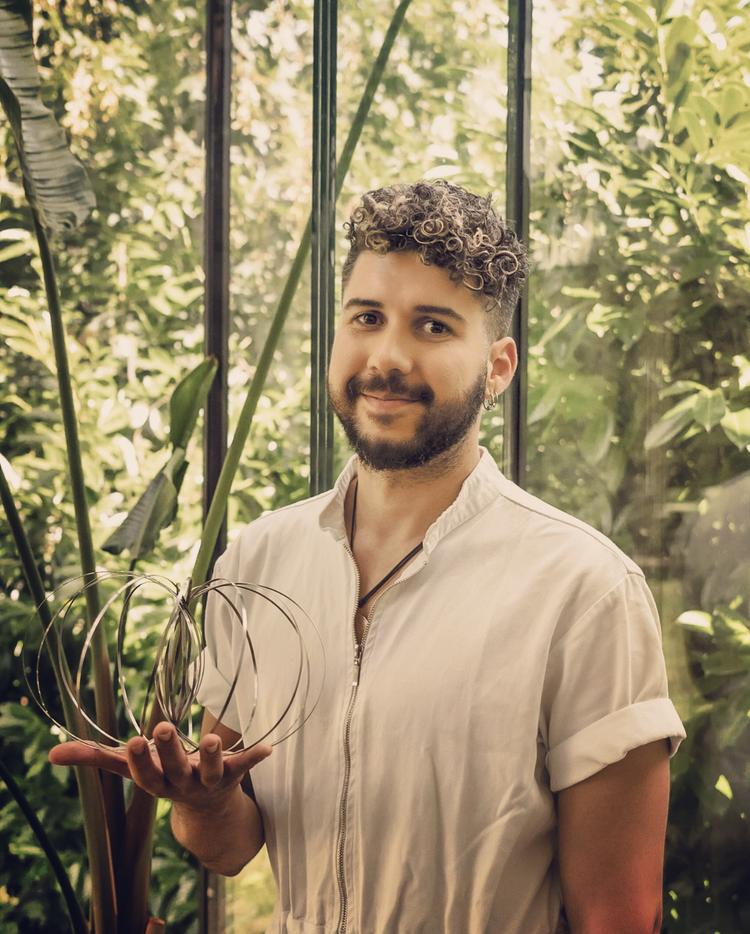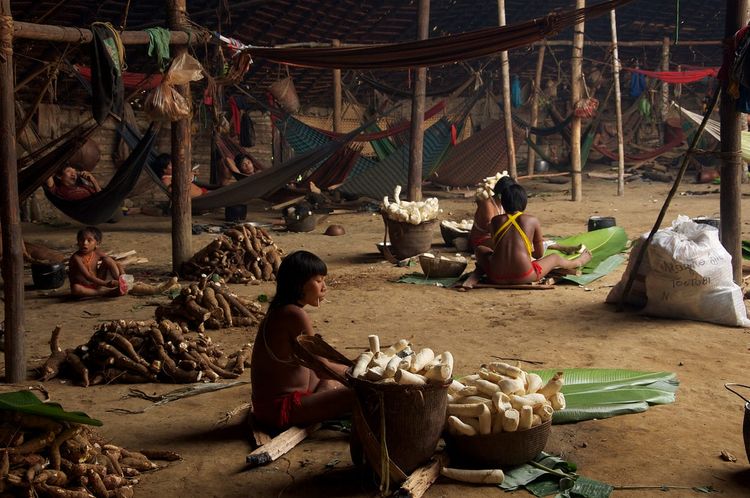#006 Beginnings, middles, and beginnings

Hey, traveler. Please do if you didn't get the chance to read yesterday's issue: 005 synchronic notes of survival in the world. Our platform got an update and many people didn't receive the email as usual. We talked about time as the driver of our existence, the battle between narratives in the world, and long-term thinking. But also about empowerment through the life force coming from our core, represented in many cultures as a serpent, the kundalini in yoga, or the ouroboros, an emblematic serpent of ancient Egypt and Greece, swallowing its tail, as an emblem of wholeness or infinity in our cosmic dance.
Today, I would like to tell you about rhythm, the sixth tone, from the tones of experimentation. Is one of my most important lessons, to understand that a long journey (like a life) needs steady steps. If the pace of your life is not sustainable today, it will affect your tomorrow. You can try to drink more coffee or a red bull to do extra work one day, but in the long term, it looks like the beginning of a bad habit slowly building your standards. When you are in your 20s your body can take, but your energy level will start to show you how hard is to recover from the lack of a healthy routine. So is fundamental to find your pace, your rhythm.
6. Rhythm (balance, organization, the pace at we walk our paths)
As a self-reflection:
What is my pace? How to organize my walk with equality?
To respect your rhythm is an invitation to self-acceptance and self-love with your present self. Sometimes we can't do it all or have it all. While writing about it came to me Veruca Saldy, the character from Willy Wonka & The Chocolate Factory, singing: "I want the world! Give it to me now! I want today, I want tomorrow!". Among the children in the movie, she was the one representing greed. She wanted to get the prize before live the process that could lead her there.
To listen to our bodies and respect our pace, our rhythm, is also a way to believe that there is more to come and we should keep leaving our process. Traveling our travel. This is the narrative within also the sixth solar seal of the White World-Briger. Everything is connected and sometimes we need to release something or some event we are holding in order to cross the path that will lead to something else. The archetype of the Connector. This force is Caronte, the Greek boatman who leads souls to cross between worlds. And it is every bridge in-between accepting that something is ending and the opportunities coming to you, very close, right in the other side.

Death is just another beginning. It is transformation. And, since time is the driver of change, transformation also can set the rhythm, right? To the Tzolkin, Death is not the end, but the opportunity for a new beginning. The idea of an ending comes from linear time. In a spiral time, we are always starting a new round, just at a different level of the spiral, our journey. We live many deaths during our life. And I invite you to celebrate your beginnings, middles, and beginnings. To find your rhythm.
As a celebration of my own cycles, since I am also a World-Bridger, I want to tell you about some professional events in my life that at some point I allowed myself to let go, to allow also what would come after then. Once in a while, I feel that I am starting a new lap of the same previous cycles and also new ones. (Everything, everywhere all at once).
"I'm late!"
In 2012, I moved from my hometown Belém to São Paulo on the eve of my 25th birthday. Influenced by the media, and my references in the creative industry at that time, I used to believe I would be "too old for that" if choosing to live in a different city after that. Distorting the reality, awards such as Forbes Under 30 are selling this narrative. So hurry up! "I'm late!", was screaming the white rabbit of Alice in Wonderland in my head. In Belém, I was already Director of Strategy in one of the biggest advertising agencies, at a really young age. I went from trainee in the university lab to coordinator, starting to work with digital projects in a design studio that led me to manage digital projects in the agency and being promoted from manager to director after some good results. To have such a big title in my resumé was not helping to find a job when I moved to Sao Paulo, since I didn't have any professional network in the 4th largest city in population in the world.
Protests in challenging times
In 2013, I was already working in one of the best advertising agencies in Sao Paulo. It was hard to get there, and I spent 6 months in a temporary job with them to get an official job offer. I had learned a lot during the last year with more than 300 people from different fields and skills I had the opportunity to work with. It was an MBA experience as a strategist and researcher, working with global brands. But, in 2013, in the context of the Arab Spring happening in Egypt and the protests starting to get some heat also in Brazil, I felt the urge to do something else other than projects studying brands. With the June Journeys, as became known the 2013 protests in Brazil, I entered my boss' room asking to quit my job. With my new skillset and toolset acquired in the last year, I wanted to study change.
I was still a kid without any clue of how to survive out there. No safety net to allow that idea to happen. But I praise the courage of my younger self. That year, with that movement, I called the attention of the agency's CEO that invited me to do my study about the protests as an experimental project, "a lab", to be released in partnership with them, bringing also some contribution about its impact on the work of brand building. Looking backward, I was making my first research report about the spirit of the time, 9 years ago. I had the opportunity to release in English to other agencies from the same international group to get to understand what was happing in our culture and I also shared the work in festivals and conferences at that time.
The self-indulgence, stigma placed on Brazilians through the years lost meaning and was substituted by protests of dissatisfaction throughout the whole country. The people have woken up and the current digital context has an important role in the nation’s change of attitude. To be a part of this context, F.biz followed all the forms of expression that disseminated through the social networks, channels, and digital platforms during the weeks of protest. However, the work of a publicity agency doesn’t happen just behind a computer screen. Our team left the Internet and went to the streets to see and closely observe the protests. Here you will follow a series of cards published in June 2013 on our fanpage, with some of the most relevant moments related to the digital culture during the first great protest of a hyper- connected Brazil, together with our vision about how the Brazilian consumer is transforming itself and its impact on our work about brand construction.
Changing timelines
In 2014 I left the agency and also São Paulo. I had moved from Belem to Sao Paulo with the vision to move to somewhere "faster, bigger, better" like New York, buying the (crazy) American dream. Instead, I quit this timeline. I fell in love with a guy in the south of Brazil and, after some months and trips getting to know each other without the commitment of a long-distance relationship, I decided to move to Porto Alegre. As a workaholic, I had a lot of work experience but I was far from understanding the journey of my life experience. So I decided to try. New city, new friends, everything was easier since I had the status of a newcomer that had just arrived from a big city. Porto Alegre had more similarities with Belem than its contrasts. I had just read a book mentioning it was the capital where a lot of innovative projects had started in the previous years. So why not give it a try?

Who are the new Brazilian talents that created businesses in which the purpose of life is fundamental? Who exchanged salary and stability for the possibility of doing what they believe in, the way they believe, alongside people they admire? Which companies are inventing new products and services - or reinventing products and services as we know them?
Chapter by chapter, Mariana Castro tells the story of creative startups - among them, Inesplorado, Perestroika, Mesa & Cadeira, Mandalah and Flag - based on themes such as "what is", "how it became reality", "business model” and “future”. Mandatory reading for anyone who believes it is possible to transform the world by doing their work with pleasure, purpose and dedication.
Zeitgeist, the spirit of the time
In 2015, I was working as a strategist in a traditional agency in Porto Alegre while supporting the birth of a new strategy studio of my manager that became a friend. It was amazing to work with her and the clients were getting curious about the ideas we were building together, having great results. But, I knew already my place was not as an agency's employee. I told her my calling to keep sharing my studies as a teacher. Thanks to the universe, my friend was also the coordinator of the ESPM/Miami Ad School course called Strategy Academy where my classes about understanding the spirit of the time started to happen.
New protagonists of our time
In 2016, my life led me to start a new project in partnership with one of the most prominent creative schools in Brazil, Perestroika, which made me let go of Porto Alegre to be flying around the country. How do stay relevant in the next narratives for our planet? Global brands, platforms, and media companies face this challenge. So I created the course "Fractal: zeitgeist and the new communication protagonists" in which I curated and invited major executives and leaders from companies such as Google, Spotify, Netflix, Vice, Box1824, Flagcx, Red Bull, Nubank, ThoughtWorks, and more to teach the classes by my side, creating the necessary credential to the project and also guaranteeing the safe space for learning, growth, and connection as well. For two years, the project traveled through more than 20-in person editions around the continental country Brazil. São Paulo, Rio de Janeiro, Brasília, Porto Alegre, and Belo Horizonte, were the most visited cities, each with their own local team to make the operation happen.
In two years we had students from executives to entrepreneurs attending the course, from a B2B and B2C business model, with a success feedback rate of 4.95 of 5 stars, and huge gross revenue. It was impressive for an independent project. At the end of the second year, the challenge became how to keep the legacy of the project alive without the structure of trips around the country. With my team and business partners, we scripted, recorded, and edited an online version of the course with the most important learnings, offered on an online platform that Perestroika developed also with my consultantship. It has remained online since then. A business case that I am proud to have developed and shows the potency of when we face change.
We live in a great change of era. And that means that we are experiencing a change in the context of the world like never before. A shift from the way of thinking we use to understand what is happening around us right now. If a new society is emerging, the communication market also seeks to reorganize itself within it: consumer relations have changed, communication tools have evolved exponentially, and the purposes that guide companies in choosing strategic partners are resignified every day.
How can we be in line with the spirit of our times, generate a positive impact and achieve better business results. Brands, vehicles and new companies explore new paths. After all, to be relevant in the communication industry today, it is necessary to abandon the logic of being intermediaries and act as a protagonist. Fractal. A course with the vision, processes and tools of the companies that define the new steps of communication.
Experimenting with collaboration
In 2017 I had the opportunity to do a collaboration with most of the companies I had invited to my course. Searching on the internet is amazing to find the video we did during MESA Cyborg, a project with Neil Harbisson and Moon Ribas.
Cyborgs Neil Harbisson and Moon Ribas took the head of the table of #MesaCyborg and together with a group of extraordinary professionals created 'Design Yourself': a platform that explains what cyborgism is all about and helps people on the path of becoming a cyborg themselves. We also created a tooth that allows for the world's first-ever trans dental communication.
Also, I want to share this article I wrote about blockchain's potential and the new collaborative economies necessary to unlock the future for Box1824.

In the midst of a deep crisis of coervienfidence in established models – public institutions, political parties, brands, and conventional companies, etc. – we are starting to look for new perspectives. We are living in a transition between the end of the current economic model and the awakening of new economies, more open to collaboration and sharing. This is the argument posited by author Rachel Botsman in her book “What’s Mine is Yours: the Rise of Collaborative Consumption.”. In a collaborative economy, it is essential that all services involve communities that are formed around a certain purpose, and whose reputations are continuously maintained. Rachel states that the currencies of this new economy are transparency and trust.
To call it a day, for now, I also worked on a project as a guest curator with Inesplorato. They are knowledge curators. I was able to learn more in-depth about their curatorship method after I had bought an experimental service they had, called the "knowledge curatorship box" they delivered after an interview I told them about my relationship with time. This unlocked another beginning. One that I will tell you about tomorrow. Hope to see you here ;)
With love,
Gustavo Nogueira de Menezes
NS1.34.11.23, Tue 24 May 2022
Kin 6 White Rhythmic World-Bridger








Member discussion